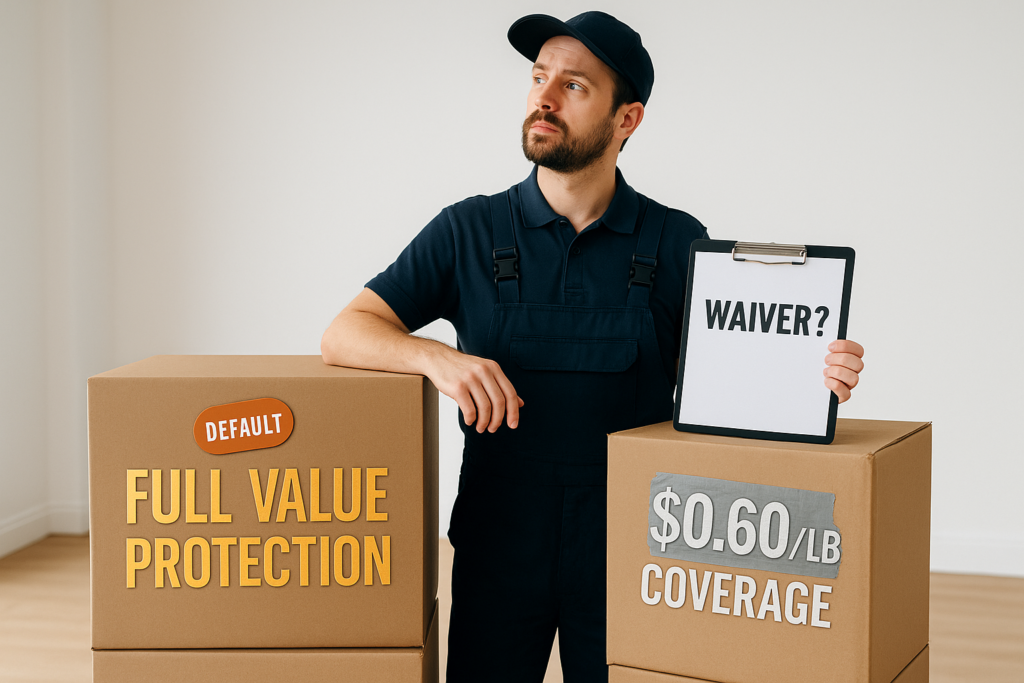In the world of moving, surprises can be delightful, a client tipping your crew with fresh donuts, for instance. But some surprises are less delicious, like discovering that Full (Replacement) Value Protection (FVP) applies whether your customer paid for it or not.
Let’s clear this up so your team stays on the right side of federal law (and avoids headaches later).
The Bottom Line:
As a motor carrier, you’re responsible for the full replacement value of your customer’s household goods if they’re lost, damaged, destroyed, or simply vanish into the moving truck abyss. This liability is the default, unless the customer explicitly waives it in writing.
According to the Surface Transportation Board (STB):
“The motor carrier is liable for the full value of household goods that are lost, damaged, destroyed or otherwise not delivered to the final destination unless the individual shipper waives such liability in writing.”
Translation: No waiver, no escape hatch.
What does this mean in practice?
When you show up for a pickup and the customer hasn’t purchased separate moving insurance, you don’t get to assume they’re automatically opting for the cheaper Released Value coverage (the famous $0.60 per pound per article). That waiver must be in black and white, signed and dated, before you can limit your liability.
Here’s a quick cheat sheet to avoid confusion:
✅ Released Liability Coverage ($0.60/lb/article):
- Requires a written waiver from the customer.
- Popular because it keeps moving rates lower.
✅ Full Value Protection (FVP):
- The default coverage in the absence of a waiver.
- Customers declare the shipment’s value in writing.
- Charges vary by your tariff, and must appear on both the Revised Estimate (if added after arrival) and the Bill of Lading.
- Crossing out the FVP option is a no-go, it does not absolve you of responsibility.
Pro Tip:
Always encourage your customers to purchase third-party moving insurance, and always document their valuation choice. A polite conversation at pickup can save you legal wrangling later.
In Summary:
FVP isn’t an optional upgrade, it’s the default mode of liability. Unless the customer waives it in writing, you are on the hook for the replacement cost. And yes, we get it, remembering every rate, declaration rule, and form can feel like trying to recite the alphabet backwards.
That’s why CSI has developed streamlined Revised Estimates designed to keep your paperwork, and your liability, crystal clear.
Ready to make compliance simpler (and protect your business)? Reach out to us today to learn more.
